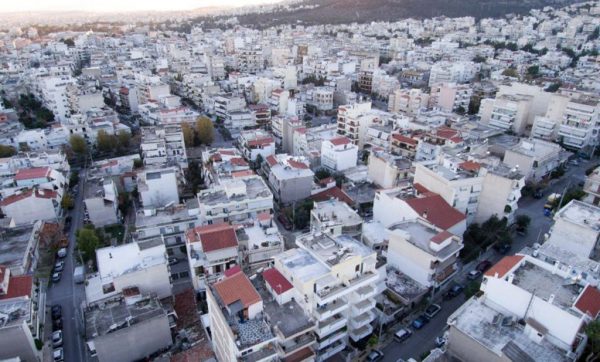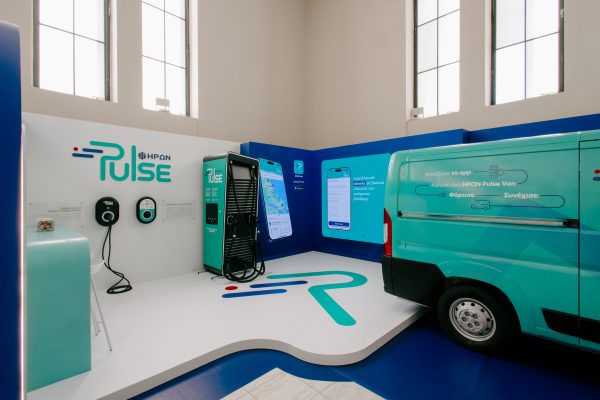
The recovery continued in the third quarter of 2021, however the resurgence of the pandemic and the energy crisis pose downside risks for the fourth quarter of 2021 and jeopardize the disposable income of households.
This is the main conclusion of Eurobank’s weekly study “7 DAYS ECONOMY”.
According to the bank, the energy crisis and inflationary pressures pose declining risks to production, especially in industry, and real disposable household income in the 4th quarter of 2021. Added to this is the current resurgence of the pandemic, the intensity of which does not seem to have been expected.
According to preliminary estimates of the national accounts for the third quarter of 2021 (source: Eurostat), real GDP in the Eurozone strengthened on a quarterly basis by 2.2%, marginally higher than in the previous quarter (2.1%), according to the bank. The annual real growth rate was 3.7%, much lower compared to the 2nd quarter of 2021 (14.2%) due to the elimination of the positive base effect of the 2nd quarter of 2020. Undoubtedly, the period April-May 2020, ie the period implementation of the first round of restrictive measures, was the bottom of the COVID-19 pandemic economic cycle. Most macroeconomic performance – in qualitative terms – with that of the Eurozone has been shown by most EU-27 countries for which data are available. Indicatively, the annual change in real GDP in Belgium slowed to 4.7% in the third quarter of 2021 from 15.1% in the second quarter of 2021, in Spain from 17.5% to 2.7%, in France from 18.8% at 3.3%, in Italy from 17.0% to 3.8%, in Austria from 12.6% to 4.8% and in Portugal from 16.1% to 4.2%.
The recovery
The national accounts of Greece for the 3rd quarter of 2021 are scheduled to be published on December 6, 2021. We note that in the 2nd quarter of 2021 the quarterly and annual real growth rate in Greece amounted to 3.4% and 16.2% respectively, with the domestic economic activity to exceed, albeit marginally, pre-pandemic levels (+ 0.2% compared to the 4th quarter of 2019). These observations, as well as the recent quarters, are expected to be reviewed in the context of the regular reviews of ELSTAT (seasonal correction, updating of primary data, 2nd estimate of national accounts 2020 with a decline of 9.0% against 8.2% based on the 1st estimate ).
Based on the high frequency indices, the recovery of the Greek economy seems to have continued, albeit at a slower pace on a quarterly and annual basis, in the 3rd quarter of 2021. According to the recent publication of ELSTAT, the retail trade volume index, after the high rise which marked the period March-June 2021 (12.2%) with the gradual opening of social activities, in July and August 2021 showed a decline of 1.6 MoM% and 0.9 MoM% respectively. Therefore, assuming that there will be no dramatic change in the observation of September 2021 (published on 30/11/2021), the rate of change of the retail trade volume index will show a large slowdown in the 3rd quarter of 2021. Similar qualitative conclusions are drawn for manufacturing, with trends of slowing down the growth rate of production in the 3rd quarter of 2021. In terms of economic climate indicators and manufacturing PMI, the upward trend of the previous two quarters continued, albeit at a slower pace, in the third quarter of 2021. Finally, messages from the tourism sector are encouraging, with arrivals abroad at domestic airports in September 2021 to be 73.1% of the corresponding arrivals in 2019, signaling much better than expected recovery of tourist receipts in 2019.
Conclusion
The above data, together with the performance of the Greek economy in the first half of 2021, which was also based on conjunctural factors such as the accumulation of stocks, partly justify the recent revisions on the improvement of the estimates of many international organizations for the real growth rate in 2021. , the energy crisis and inflationary pressures pose declining risks to output, especially for industry, and real household disposable income in the fourth quarter of 2021. Added to this is the current resurgence of the pandemic, the intensity of which seems unexpected. The vaccination campaign and the experience from previous pandemic outbreaks mitigate the effects on the economy of the ongoing new wave of health crisis. On the other hand, the scope for budgetary intervention is not as large as it was when the pandemic started.
Latest News

Capital Link Forum Highlights Greece’s Economic Resurgence; Honors BoG Gov Stournaras
Capital Link Hellenic Leadership Award recipient, Bank of Greece Gov. Yannis Stournaras, an ex-FinMin, was lauded for his pivotal role during Greece’s economic recovery

Tourist Spending in Greece Up by 14%, Visa Card Analysis Shows
Greece’s capital Athens emerged as the most popular destination, recording a 17% increase in transactions with Visa cards, surpassing even the cosmopolitan island of Mykonos.

Inflation in Greece Unchanged at 2.4% in Nov. 2024
The general consumer price index (CPI) posted a 0.4% decrease in November compared to the previous month

2024 Christmas Holidays: Extended Shop Hours Schedule
The 2024 Christmas Holidays extended shop hours schedule commences on Thursday, December 12 and runs until the end of the year.

ELSTAT: Seasonally Adjusted Unemployment Down in October
The number of employed individuals reached 4,284,694, an increase of 67,723 compared to October 2023 (+1.6%) and 22,002 compared to September 2024 (+0.5%).

Greek PM’s Chief Economic Adviser Resigns
In the post on his Facebook page, Patelis did not disclose the reasons that led him to step down.

“Masdar Invests in the people of Greece and in the vision of TERNA ENERGY”
Four messages from the CEO of Masdar, the Arab renewable energy giant, after its acquisition of 70% of TERNA ENERGY

Lloyd’s List Greek Shipping Awards 2024: Honors for leading companies and personalities in the Greek shipping sector
20 awards presented at the 21st annual Lloyd's List Greek Shipping Awards

Syria’s Bashar al-Assad, His family Granted Asylum by Russia
Reuters also reported that a deal has been struck to ensure the safety of Russian military bases in the war-ravaged country

Greece to Introduce Artificial Intelligence into Its Education System
Currently, Greece is taking its first steps to bring AI into classrooms through the AI4edu program, which is being co-funded by the European Union















![Χειμερινή εξοχική κατοικία: Οι Ελληνες γυρνούν την πλάτη παρά την πτώση των τιμών [γραφήματα]](https://www.ot.gr/wp-content/uploads/2024/12/Capture-19-90x90.jpg)

























 Αριθμός Πιστοποίησης Μ.Η.Τ.232433
Αριθμός Πιστοποίησης Μ.Η.Τ.232433